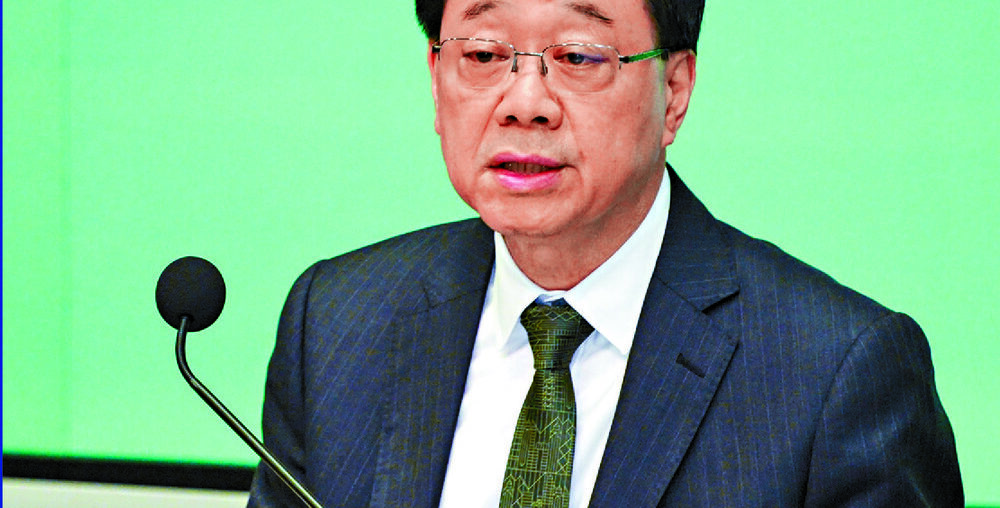Themis Qi
Chief Executive John Lee Ka-chiu yesterday further eased mortgage rules to levels last seen in 2009 in a bid to end the city’s prolonged property slump.
Homebuyers can now get mortgages of up to 70 percent of the flat’s value with easier debt-servicing terms, regardless of the value of the property and whether it is for their own use or for rent.
On the back of the news, CK Asset raised prices of unsold homes – and other developers predicted that more buyers would now enter the property market.
Lee’s third policy address had a record 228 paragraphs covering eight sectors but was significantly shorter at just over two-and-a-half hours from his previous address, which lasted a record three hours and 20 minutes.
In one of the highlights, Lee said the Hong Kong Monetary Authority will set the loan-to-value – or LTV – ratio for all residential and commercial properties at 70 percent, whatever the price, and for all purchasers including second-home buyers, investors and companies.
At the same time, the debt-servicing ratio – the monthly repayment obligations of the borrower as a percentage of monthly income that banks will check in the qualification review – has been adjusted to 50 percent for all applicants.
The changes, Lee said, were made after considering the “latest economic and financial environment” where the city is still facing uncertainties, including the unclear pace of US interest rate cuts.
Before the adjustments, buyers of a first home valued at HK$30 million above for investment or company-held properties could borrow as much as 40 to 50 percent of the property’s value from banks, in addition to the highest DSR of 40 percent.
All changes, with effect yesterday, mean mortgage-related “counter-cyclical macroprudential measures” have been restored to the 2009 levels, the HKMA said.
The HKMA said the banking sector has ample buffers to cope with any challenges from a sharp correction in property prices and stressed that the measures could be tightened again if mortgage-related risks increase.
Only about eight months ago, the government removed all additional “spicy stamp duties” and raised the LTV caps on self-use homes in addition to suspending stress tests.
However, the February stimulus was short-lived, as home prices only rallied for two months and then retreated for four consecutive months as of August to a new low after November 2015, due to high inventories and borrowing costs.
Home prices have lost 26.6 percent from the peak in 2021 while those of commercial properties decreased at least 12 percent in the first eight months of the year.
The monthly average transaction in the third quarter also dropped to 3,400 units, back to levels seen in the first three months of the year.
Amid a lackluster market, local developers have kept away from land tenders, slashing government revenues from land sales by 76 percent to only HK$4.6 billion for the first three quarters of the current financial year ending in March 2025.
With the easing, CK Asset executive director Justin Chiu Kwok-hung expects the market to steadily recover while Wheelock Properties managing director Ricky Wong Kwong-yiu says more home owners may upgrade their residences. Buyers of luxury property and those who want to buy a second home for investment are expected to benefit from the eased requirements the most, said mortgage advisory firm mReferral.
Now, for a second flat valued at HK$5 million, purchasers who have outstanding mortgage loans can pay HK$500,000 less for down payment and can access mortgages more easily with the DSR cap raised by up to 10 percentage points.
For properties with a price tag of HK$30 million or above, buyers can save as much as HK$3 million on down payments.
But real estate services firms including JLL and CBRE believe that the move could help boost transaction volumes not prices, amid the high inventory of new homes and economic uncertainties.
themis.qi@singtaonewscorp.com
More reports: Pages 4, 6, 7 and 9; Editorial: Page 8



